








‘READS LIKE THE SCRIPT OF A MOVIE’ INDEPENDENT
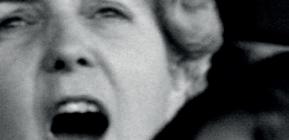






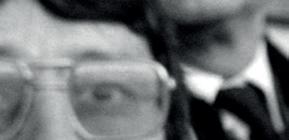
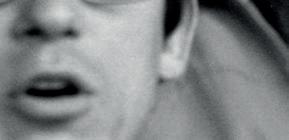

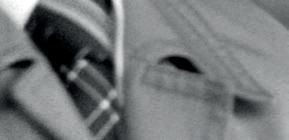


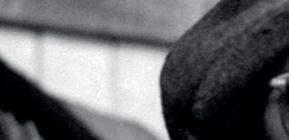




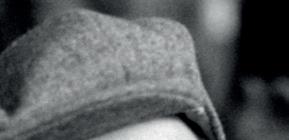

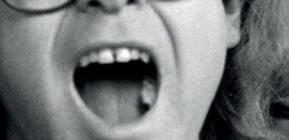




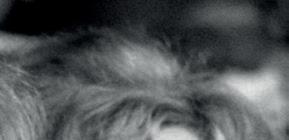
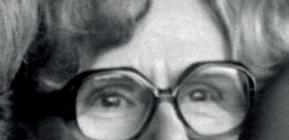


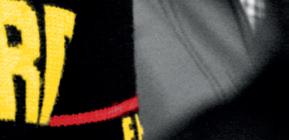



How
Graham Taylor and Elton John Saved a Football Club, a Town and Each Other‘If John Preston hasn’t already sold the film rights to this book, he surely will soon. Watford Forever is the heart-warming story of the collaboration and friendship between English football’s oddest couple, Elton John and Graham Taylor’
Robert Crampton, The Times
‘Watford Forever teems with unforgettable images . . an ever-entertaining telling of a remarkable sporting fairy tale’
Declan Ryan, Daily Telegraph
‘A warm and redemptive tale . . . packed with anecdotes, moments that skewer the times with economy and prevision. Endless laugh-out-loud yarns . . it rattles along at page-turning pace’
Jim White, Independent
‘Entwining sport, music and social history, the absorbing Watford Forever is a masterfully judged, saccharine-free, true-life fairy tale, which showcases another side of Elton John’
John Aizlewood, iNews
‘It is hard to read Watford Forever without becoming overwhelmingly nostalgic . . Preston burrows to the heart of what for a while Watford got so right’
Simon Burnton, Observer
‘John bought his beloved Watford FC when it was near the bottom of English football, then carried it to glory in alliance with manager Graham Taylor – his polar opposite. The rock star collaborated with Preston, a skilled and versatile writer, for this English-odd-couple feel-good story’
Financial Times
‘You don’t have to be a Watford fan to enjoy this terrific book. It is about much more than the unlikely friendship between one of the most famous stars on the planet, who as a boy had loved being taken to Watford matches by his distant father, and the fiercely ambitious son of a sports editor who wanted, in his managerial achievements, to make up for an undistinguished playing career’
Daily Mail
‘The original football fairy tale of a small club rising from the bottom to the top’ Watford Observer
John Preston’s most recent book, Fall: The Mystery of Robert Maxwell, was a Sunday Times bestseller, was shortlisted for the Baillie Gifford Prize and won the Costa Biography Award in 2021. His first non-fiction book, A Very English Scandal, was published to great acclaim in 2016 and was adapted into a multiple-award-winning miniseries. He is a former arts editor of the Evening Standard and the Sunday Telegraph. For ten years he was the Sunday Telegraph’s television critic and one of its chief feature writers.
Elton John is a multi-award-winning solo artist and bestselling author. He is one of the top-selling artists of all time, having sold more than 300 million records worldwide. He is also the first solo artist ever to score a UK top ten hit single in six consecutive decades.
PENGUIN BOOK S
John Preston A collaboration with Elton JohnUK | USA | Canada | Ireland | Australia India | New Zealand | South Africa
Penguin Books is part of the Penguin Random House group of companies whose addresses can be found at global.penguinrandomhouse.com.
First published by Viking 2023 Published in Penguin Books 2024 001
Copyright © WAB Global Limited, 2023
The moral right of the copyright holders has been asserted
With thanks to the Watford Observer for the reproduction of their articles on pp. 83, 166 and 225
Typeset by Jouve (UK ), Milton Keynes
Printed and bound in Great Britain by Clays Ltd, Elcograf S.p.A.
The authorized representative in the EEA is Penguin Random House Ireland, Morrison Chambers, 32 Nassau Street, Dublin D 0 2 YH 68
A CIP catalogue record for this book is available from the British Library
ISBN : 978–0–241–99691–1
www.greenpenguin.co.uk
Penguin Random Hous e is committed to a sustainable future for our business , our readers and our planet. is book is made from Forest Stewardship Council® certified paper
In memory of Oli Phillips and Eddie Plumley
‘But is this story believable? Ah, it all depends on whether you want to believe it.’
J. L. Carr, How Steeple Sinderby Wanderers Won the FA Cup
1, Evening Standard/Getty; 2, Colorsport/Shutterstock; 3, 4, Michael Putland/Getty; 5, The Phillips family; 6, 7, 10, 12, 20, 26–7, Alan Cozzi Archive/Watford FC; 8, 16, PA Images/Alamy; 9, Mike Hollist/Shutterstock; 11, 13, 22, Bob Thomas Sports Photography/Getty; 14, 15, 29, Paul Popper/Getty; 17, 18, Andrew Cowie/Colorsport; 19, Cairns/Mirrorpix/Getty; 21, Keith Hailey/ Getty; 23, Harry Prosser/Mirrorpix/Getty; 24, Std/Daily Express/Getty; 25, David Graves/Mirropix/Getty; 28, 30, Mirrorpix/Getty; 31, Huew Evans/Shutterstock; 32, Steve Bardens/ Getty and mural artwork designed and painted by MurWalls/ www.murwalls.com; 33, Matthew Impey/Shutterstock; 34, 35, Ben Gibson/Rocket Entertainment; 36, Michael Zemanek/Shutterstock and mural artwork designed and painted by MurWalls/ www.murwalls.com.
Every effort has been made to trace copyright holders and to obtain their permission for the use of copyright material. The publisher apologizes for any errors or omissions and would be grateful to be notified of any corrections that should be incorporated in future editions of this book.
On the last Saturday of August 1975, Watford Football Club travelled to County Durham for what their manager, Mike Keen, described as a ‘must-win game’ against their Fourth Division rivals, Darlington. Despite being relegated from the Third to the Fourth Division three months earlier, Watford had begun the new season in bullish mood. ‘It is the rm resolve of this club to prolong our stay in Division Four no longer than necessary,’ the Watford chairman had declared con dently. ‘We can assure all our supporters that no e ort will be too much towards the target of immediate promotion.’
To prepare them for the challenge ahead, the players had been put through an intense tness regime. Mike Keen himself was brimming with optimism. ‘The pre- season training has gone extremely well and our players are as t as any in the league,’ he told the club’s supporters.
But this ghting talk had had little, if any, e ect on the players. Their rst game of the season, a friendly against Weymouth, had ended in a 3–1 defeat. ‘We were caught with our trousers down,’ admitted Keen afterwards. By way of an excuse, he cited the very bad tra c they had encountered on their journey to the South Coast. ‘We had to do without lunch, so we all had a bar of chocolate and a bottle of pop before the game.’
Keen also sought to put as much of a gloss as he could on the result. ‘It may even be a bit of a blessing in disguise, as it has given us a chance to put a few things right.’
Yet these hopes too had quickly crumbled: Watford lost their next three league games and failed to score a single goal. However disappointing their start to the season had been, the eighty
or so Watford fans who caught a specially chartered coach to the game headed north in a mood of cautious optimism. ‘Frankly, we’d become so used to losing, it had become par for the course,’ one of them would recall nearly half a century later. ‘We’d reached the stage where we went in spite of the football and not because of it. Even so, I can remember thinking, Christ, it’s only Darlington; we’ve got to stand a chance against them.’
It had been like this for as long as any of them could remember. On the rare occasions when Watford FC was mentioned in the national press, it was invariably accompanied by the word ‘languishing’. Six years earlier, Watford had caused a good deal of surprise, not least among their own fans, by winning promotion from Division Three to Division Two. But it wasn’t long before they fell into their old languishing ways. Relegated back to Division Three in 1972, Watford only lasted three seasons before sinking into the depths of Division Four.
Recently, both the club’s doctors had resigned, complaining that they hadn’t been paid for several months. As a result, any Watford players who needed medical treatment now had to go to their local surgery and wait in line along with everyone else. Meanwhile the club’s directors, kept in the dark about Watford’s nances and increasingly alarmed by what little information they could unearth, came and went with bewildering speed.
One of them left saying simply, ‘Things are a little odd here.’
As Watford fans took their places on the visitors’ stand – a set of uncovered concrete steps overlooking a wind-blasted patch of open ground – they could at least console themselves with the fact that the facilities at Darlington were even more rundown than their own. On three occasions in the last eight years, Darlington’s nancial situation was so dire that they had had to apply to the Football League for readmission.
In the early 1970s, the club had set a Football League record by being beaten 7- 0 in two successive games. Shortly afterwards, the broadcaster David Frost had come to the town to make a
television programme about the club. What he found astonished him. Talking to Darlington’s owner, Frost learned that there were only eight fully paid-up members of the supporters’ club. That season alone, Darlington got through ve di erent managers. Asked why he retained such a passionate allegiance to the club, one of their supporters cheerfully admitted to being ‘totally blind’.
Although the 1975/76 football season had been going for only a month, it had already been marred by some of the worst outbreaks of hooliganism ever seen in the UK. In Wolverhampton, hundreds of Manchester United fans had gone on the rampage leaving fourteen people with stab wounds. On the same day that Watford played Darlington, Liverpool fans travelling back from a game at Leicester set re to the train causing £70,000 worth of damage – an editorial in The Times referred to them as ‘marauding ends’. With unemployment exceeding the one million mark, there were fears that this upsurge in hooliganism might presage more widespread outbreaks of civic unrest.
Once, Watford had had a hooligan problem of its own. Supporters of the club’s near neighbours and oldest rivals, Luton Town, were always assured of an especially robust welcome whenever they visited Watford’s ground, Vicarage Road. But those days were long gone. Now the fans were in no mood to cause any trouble; they were far too dispirited for that.
On a hot muggy afternoon punctuated by rumbles of thunder, Watford’s familiar failings soon revealed themselves. Among their players, the club’s centre-forward, 22-year-old Ross Jenkins, was singled out for particular scorn. Six feet four inches tall, with legs that, as one commentator put it, looked as if they had started life on a baby gira e, Jenkins had been hailed as an exciting new discovery when he’d joined Watford two years earlier.
Yet that too now seemed an age away. After a promising start, the goals had dried up, and so had the fans’ patience. Now Jenkins was regularly referred to as one of the worst signings in
the club’s history. His ball control was so erratic that it was said that he couldn’t trap a sack of wet cement if it landed at his feet.
As for his heading, this was reckoned to be even worse – fans joked that he could be outjumped by any one of Snow White’s seven dwarves.
On the few occasions when Jenkins managed to score, Watford supporters had taken to breaking into ironic applause. Before the start of the season, another Fourth Division club, Hudders eld, had o ered Watford £12,000 for him. Fans implored him to accept the o er, but Jenkins had opted to stay put – a decision that prompted further gloom among the Watford faithful.
By half-time, Watford were already a goal down. During the break, Keen sent one of the Watford players, Keith Mercer, over to the club’s tiny band of supporters to try to whip up some enthusiasm. ‘Mercer’s request was successful, but only for a time,’ noted the Watford Observer ’s football correspondent in his match report: ‘As one of the fans explained, “We kept on chanting for Watford until we were surrounded by Darlington fans. After that we had to stop or get our heads kicked in.’ ”
In the second half, Watford seldom ventured into Darlington’s territory. Whenever they did so, a collective panic seemed to come over them, as if they felt they had no business being there. Hurriedly, they scuttled back into their own half. At full-time the score remained 1-0.
As they trudged o the pitch, the Watford players were jeered by both the Darlington supporters and their own. As far as the Darlington directors were concerned, the catcalls of the Watford fans had an oddly melodic ring to them. ‘To be honest, it made a change to see someone else getting some stick,’ one of them said.
For Ross Jenkins, the defeat con rmed all of his worst suspicions: ‘I remember thinking that we were at the bottom of a deep, dark ditch and I couldn’t see any way out.’
On the substitutes’ bench that day was an eighteen-year-old
striker called Luther Blissett, who had joined Watford straight from school as an apprentice and had just turned professional. Blissett was feeling every bit as downcast as Jenkins. ‘There was no doubt that morale was terrible, and that obviously a ected players’ con dence. I think the worst of it was that no one seemed to have a clue as to how we were ever going to get out of this situation.’
After the game was over, Mike Keen refused to comment. ‘I don’t really want to say anything as I might say the wrong thing,’ he told waiting journalists. When one of them suggested that nothing could be ‘the wrong thing’ after a performance like that, Keen still refused to be drawn.
To save money, the Watford players would often travel to away games by train rather than by coach. The 200-mile journey back down south passed in sombre silence, with the players quietly playing cards, or gazing glumly out of the window.
Afterwards the club’s directors made no attempt to gloss over the gravity of the situation: ‘Let there be no doubt in anyone’s mind that the board, manager and players feel as shattered as all our supporters over our dreadful start to this season’s league programme,’ they announced.
No one could argue with this. Then, as now, there were ninetytwo clubs in the English Football League, spread across four divisions. Watford were lying in ninety-second place.
One Saturday afternoon in the autumn of 1953, a six-year-old boy from Pinner in Middlesex called Reginald Dwight accompanied his father to watch Watford FC play at Vicarage Road. From the semi-detached house at 55 Pinner Hill Road that they shared with the boy’s maternal grandmother, the two of them walked the half-mile to the tube station at Northwood Hills, then caught a Metropolitan Line train to Watford four stops away.
It was one of the rst outings they had ever been on together and Reginald – always known as Reggie – had no idea what to expect. An only child, he had been terri ed of his father for as long as he could remember. He was frightened of his mother too, but that was di erent. Whereas Sheila Dwight could be warm and vivacious one moment, then erupt with volcanic intensity the next, Stanley Dwight was a remote, staid gure – as solemn as he was judgemental.
A squadron leader in the RAF, Stanley was often away from home – when Reggie was two, his father went to Iraq for two years. With Stanley’s return, the atmosphere in the house changed. Previously, Reggie had had only his mother and grandmother for company. Now, there was an unfamiliar face sitting at the kitchen table. Any sense of family harmony disappeared overnight. As far as Reggie was concerned, it was as if the air was crackling with tension.
Constantly, Stanley and Sheila were tearing into one another. Meanwhile, Reggie remained stuck in the middle, trying to make himself as inconspicuous as possible and never managing to shake a nagging sense of guilt that in some way he was responsible for his parents’ marital strife.
But on that afternoon, something unexpected happened. Emerging from the tube station, Stanley reached down and took his son’s hand. As he did so, Reggie had a sensation that he’d hardly ever had before, a feeling of closeness to his father; a sense that perhaps he might not be such a disappointment to him after all. And it wasn’t long before Reggie felt something else that he had never experienced before – a feeling of pride that Stanley was allowing him to share in one of his great passions: Watford Football Club.
Walking along, the two of them were surrounded by a growing band of people. Many of them had blue and white scarves wrapped round their necks. All were heading in the same direction. When they reached the ground, Stanley paid fourpence for a programme for his son, then they took their places on a small asphalt-covered mound at the Rookery End of the ground known as ‘The Bend’. Although Reggie had often been to the cinema with his mother, this was the rst live entertainment he had ever seen. While the cinema was quiet, with everyone sitting silently in the darkness, this was completely di erent. The ground was pulsating with noise, with people chanting and whooping away.
At home, Reggie would never have dreamed of raising his voice – ‘I was far too shy for that.’ But here he could shout and boo and holler as much as he wanted. Never before had he felt a sense of being part of a crowd, of being swept up in a tide of emotion. Of just belonging.
Looking around, with his father standing beside him, he thought it was the most exciting, the most glamorous thing he had ever seen. Later on, he would come to realize that it wasn’t really glamorous at all. In reality, Vicarage Road was a crumbling ruin with two rickety stands and men’s toilets so dark and dingy that mushrooms were reputed to grow on the walls. There was no women’s toilet in the entire ground. The seating consisted of rows of bare wooden benches, all polished to a dull sheen by generations of working-men’s bottoms. Only one of the stands
had a roof – not that it o ered much in the way of shelter; the corrugated-iron roof was pitted with holes. Nor was the ground heaving with people; attendances had fallen to the point where only a few thousand diehards bothered to turn up.
Yet somehow none of that mattered. The rst impression was what counted – and this rst impression was so strong that it never left him. The moment the players ran onto the pitch, Reggie was even more smitten. To him, these men were titans; awesome, majestic gures with their baggy shorts and their brilliantined hair. Gazing at them, he had the same sensation as he’d had when looking up at Hollywood stars on the big screen; a feeling that these were completely di erent creatures from anyone that he had ever met in Pinner. What’s more, they seemed to live in a completely di erent dimension from his own – a dimension he could never hope to inhabit.
When the game got under way, another impression struck him just as forcefully. ‘I was bowled over by how passionate, how determined, the players were. How they gave it their all. These guys may have been stuck in the lower reaches of Division Three (South) and earning just a few pounds more than they would have been getting on unemployment bene t, but that didn’t make the slightest di erence. They still played as if their lives depended on it.’
But what made the biggest impression of all was the change in his father. At home, Stanley seemed to be sunk in gloom and forever on the verge of issuing another reprimand. Yet here he was roaring and chanting away with everyone else. This was such an extraordinary transformation that Reggie wasn’t sure what to make of it. For a moment, he even found himself wondering if this new roaring, chanting Stanley might be showing more of his true character than he ever did at home.
And this was not the only di erence he witnessed that afternoon. He also saw another, equally unfamiliar, side to his father – a more demonstrative, tender side. As it was a cold afternoon,
Stanley wrapped his son in his RAF greatcoat to keep him warm and at half-time he bought him a mug of Bovril. ‘I can remember that when I became confused by what was happening on the pitch, he patiently explained the o side rule.’
In years to come, Reggie would look back on that Saturday afternoon as the day when his life changed for ever. From that moment, he would be as passionate about football – and Watford Football Club – as his father. Throughout his boyhood, whenever there was a home xture, the two of them would go o to Vicarage Road. And every time they went, Stanley would sh into his pocket for some pennies and buy his son a programme.
‘We always stood in the same place – we didn’t have enough money to sit down. But that was ne; I wanted to be right in the thick of things. And I don’t think we ever talked to anyone all the times we went, but that didn’t matter either; it was the 1950s – no one talked to anyone. After the game was over, I would just bounce all the way home, I felt so happy. It didn’t even worry me that much if we lost.’
The moment they came back to Pinner Hills Road, Reggie would run up the stairs to his bedroom where his new programme would join his growing collection – all of them in pristine condition and meticulously led away. No matter how badly Watford did, no matter how many disbelieving looks people gave him when he told them which team he supported, Reggie never questioned his loyalty. Ever since he could remember, he had always had a natural a nity with the underdog – for the no-hopers, the laughing stocks, the perennial underachievers.
Being a Watford fan may have involved swallowing an almost weekly dose of disappointment, but to switch allegiance would have been unthinkable. They were Reggie’s team, just as they were his father’s team. It was as simple as that.
Shortly after the end of the Second World War, full-page advertisements started appearing in local newspapers across England. They showed a photograph of what looked like an enormous tin can surrounded by hollyhocks. Beneath it was a block of text randomly spattered with capital letters which read:
The ideal house chosen exclusively by the government for RURAL housing has now been made AVAILABLE for EVERY TYPE OF HOUSING SCHEME. What does this mean? Simply that you sir – and yes, you madam – can have an Airey Prefabricated Home with all its spaciousness, its extra warmth, its attractive appearance and its convenience. To those thousands needing a home of their own, the Airey Prefabricated House provides EVERYTHING THEY DESIRE!
Graham Taylor’s family home in Scunthorpe was a pre-fab, one of 150,000 rapidly constructed from sheets of corrugated steel – often panels from decommissioned aircraft factories – to tackle the country’s post-war housing crisis. The Taylors had moved to Scunthorpe from Worksop in Nottinghamshire when the second of their three children, Graham, was three. His mother, Dorothy, was a postwoman who would wake at four o’clock every morning, set o on her round and be back in time to cook the family breakfast. His father, Tom, worked as the sports editor of the Scunthorpe Evening Telegraph, where he wrote a weekly column under the pseudonym ‘The Poacher’.
As a child, Graham accompanied his father to all Scunthorpe United’s home xtures. The two of them would sit on the narrow benches in the press box. Before the game started, Graham’s
father always gave his son a stopwatch to hold. The moment the whistle blew, Graham pressed the button on top of the watch; he then made a note of what time anything signi cant happened.
On the other side of a plywood panel sat the football correspondent of the town’s other paper, the Scunthorpe Star. Every so often, a little hatch in the panel ew open and the man from the Star would ask his father when a goal had been scored. After consulting his son, Tom Taylor passed on the information and then the hatch would slam shut again.
All his life, Graham would remember the sound the wooden hatch made as it slammed shut – a sharp thwack – and the smell in the Scunthorpe United dressing room – a liniment called Wintergreen, so strong it was used to treat arthritic horses. And he never forgot the pride he felt when he looked at his father’s match reports in the Scunthorpe Evening Telegraph and saw the times of the goals that he had recorded.
There was something else that a ected him just as deeply. As he grew older, Graham saw how closely the success of the local team in uenced the mood of the town. If the team did well, everyone seemed to be brighter and more full of beans. But if it did badly, their spirits sank back down again.
From his father Graham inherited a love of Shakespeare and romantic poetry, from his mother a strict work ethic, and from both his parents a sense of the importance of being a fully edged participant in life, not just an onlooker dawdling about on the sidelines. A clever boy, he passed his eleven- plus and went to Scunthorpe Grammar School. The school was near the Scunthorpe United ground, and sometimes during a lesson the players would run past, recognize him as the ‘Poacher’s Boy’ and give a wave. This always sent his own spirits soaring.
As well as being clever, Graham Taylor was sporty, self-assured, hot-tempered, ferociously competitive and the possessor of a wide-open guileless grin. When he was thirteen, he asked out a fellow pupil at Scunthorpe Grammar called Rita Cowling despite
the fact that she was three years older than him. While Rita may have made less of an immediate impression on people – she was as quiet as Graham was talkative – she was just as strong a personality: steady, practical and not remotely bothered by what anyone thought of her.
They met during a school play, ‘The Life and Death of Tom Thumb’, in which Graham was playing the role of Lord Grizzle, and Rita was doing the make-up. Turning round in his chair, Graham saw a slim brunette in a yellow cardigan applying blusher to the boy sitting next to him. The next evening, he made sure he turned up early and bagged the next-door chair. ‘From that moment, I was convinced that Rita would be the girl I would marry.’
What struck Rita most about Graham was his con dence; it seemed to come o him in waves. So much so that she never even thought about the age gap between them. ‘The more I got to know him, the more I saw he was a natural leader,’ she remembered. ‘He was very single- minded, very ambitious and although he was young he had this air of authority. I don’t think he necessarily knew that he’d got it, not to begin with anyway, but he did. You could tell from the way people behaved around him.’
At school, Graham was made a prefect when he was only sixteen. By then, he’d already decided that he wanted to be a professional footballer. No one from Scunthorpe Grammar School had ever become one – something that was a source of considerable pride to the headmaster. As soon as he got wind of Graham’s plans, the headmaster called him in. ‘He didn’t invite me to sit down, so I knew it was something serious, and I was trying to think what it was I had done wrong.’
What followed was the biggest dressing-down that Graham had ever had. ‘It was the quiet anger and disappointment that rose and swelled as he spoke that sticks with me to this day,’ he would recall.
If Graham persisted with such a half-witted idea, the headmaster told him, then he would bring disgrace on the school as well as shame on his family. But that wasn’t all. He would also be joining a lumpen underclass of people whose chances of making anything of themselves, let alone earning a decent living, were so slim as to be almost non-existent.
Although Stanley Dwight may have cast o his normal air of gloom whenever he and Reggie went to see Watford play, as soon as they came home the dark curtain descended once more. ‘Immediately, we would be back to where we’d been before and it was as if our going to the football had never happened.’
Why did things have to be like this, Reggie would wonder. Why couldn’t they go back to the way things used to be – before Stanley had come back and spoiled everything?
The older he grew, the more explosive the arguments became between his parents, and the more convinced he became that it was all his fault. If only he wasn’t around, then his parents would be happy and contented. ‘A lot of the arguments seemed to be about me and that made me feel that I was responsible. I also felt caught between the two of them like piggy-in-the-middle.’
The one place where Reggie could go and hide was his bedroom. At the back of the house in Pinner Hill Road, overlooking the garden where his grandmother kept a neatly tended vegetable patch, his bedroom became his sanctuary. In contrast to the discord and chaos in the rest of the house, here everything was immaculately ordered, everything had its place: his Watford programmes, his books, his Dinky cars that always looked as if they had emerged straight from the box and never had a scratch on them. All of them stood neatly ranged in rows on his bedroom shelves. ‘Everything had its proper place. That felt very important to me; I found it very comforting.’
There, Reggie would lie on his bed and read his comics – kept in equally immaculate condition as everything else. His favourite strip of all was Roy of the Rovers which appeared in The Tiger
and recounted the adventures of Roy Race, star striker of Melchester Rovers. For close on forty years, Roy Race terrorized defences with his lightning runs, once surviving an assassination attempt by a disgruntled rival – by an odd coincidence, his wouldbe assassin was called Elton – and only hobbled reluctantly into retirement after losing his left foot in a helicopter crash.
However much solace this brought him, Reggie couldn’t keep the outside world completely at bay. Never sure of himself, he became increasingly timid, shrinking into his shell, above all wanting to be approved of. For hours on end, he would stay in his room, gazing at his Watford programmes, even investing them with emotions and di erent personalities. If he felt they had been upset by the shouting downstairs, he would talk to them and try to soothe their feelings.
One of the few things Sheila and Stanley had in common was a taste for music. As a young man, Stanley had played the trumpet in several local jazz bands, while Sheila was an avid record collector. The moment she got her wages on a Friday afternoon – she worked as a milkmaid for United Dairies – she would rush o to the nearest record shop and buy herself a new 78.
It soon became clear that Reggie too had music in his blood. At the age of just three, he sat at the family’s upright piano and – according to family legend – his ngers had rippled across the keyboard with astonishing dexterity. Stanley took great satisfaction in his son’s musical prowess. If he walked past when Reggie was playing the piano, he would always give him an encouraging pat on the back. The trouble was these seemed to be almost the only times when he did approve of him.
Sheila, like Stanley, was mostly fond of big band music. But one Friday in 1956, when Reggie was nine, she came home with a record that was unlike anything she had bought before. A record which she had heard on the radio and adored, but which Stanley thought was an excruciating racket.
The record was called ‘Heartbreak Hotel’ by Elvis Presley and
the moment Reggie heard it, he felt that a door had been thrown open – a door into a future that he instinctively knew would be very di erent from the world he was growing up in. A less stu y, less narrow-minded world in which conventions were no longer set in stone and where – just conceivably – all the things that held him back might loosen their grip.
Like his mother, Reggie began to collect records, saving up his pocket money each week then rushing down to the record shop. Every time he bought a new record, he would take it up to his bedroom and write down the details on the label in a spiral notebook. Not just the titles of the A and B sides, but also the names of the songwriter, the publisher and the producer. Then, as soon as he had nished, he would memorize everything he’d written, as if he was somehow frightened that it might all be taken away, leaving him more marooned than ever.
The two great passions of Reggie’s life – football and music – had now taken root. As he would discover in years to come, they had a good deal in common. Both were mainly working-class professions, whose members had to come up through the ranks and whose fortunes rose or fell depending on how the public reacted to them. And together, they would provide the only two unshakeable pillars in Reggie’s life. ‘Sport and music kept me alive, no doubt about that.’
Although he now had a new obsession in his life, the old one burned just as brightly. While Stanley had never played football seriously, the game still featured prominently in the Dwight family: two of Stanley’s nephews were professional footballers – Roy Dwight and John Ashen. At one stage, they both played for Fulham. Every so often, one or other of them used to drop round to 55 Pinner Hill Road.
Like the players Reggie saw at Watford, his cousins too were impossibly glamorous gures. Instantly, they became his heroes, their photographs pinned to the noticeboard on his bedroom wall. John Ashen, in particular, was very keen on American cars,
and always liked to show o his latest purchase. Whenever this happened, a wildly excited Reggie would be taken out to the street where he would gaze awestruck at what looked just like a space rocket that had landed in Pinner Hill Road.
Yet such respites were few and far between. At home, Reggie lived increasingly in his own fantasy world. ‘It was the 1950s. There was no television, at least not in our household. You had to make your own make-believe.’
Every night, after he had gone to bed, he listened to the latest releases on Radio Luxembourg. With the volume turned down low, he would twist his transistor radio about beneath the blankets, trying to improve the reception, catching snatches of melody between the gales of static. As he did so, Reggie would let his imagination run wild, rushing o to places it would never have dreamed of going during the day. ‘Basically, my whole world was make-believe. In between the records, I would pretend to be a disc-jockey and then, as soon as a new song came on, I would pretend to be the singer. Pretence was a wonderful thing for me; in a lot of respects it saved me.’
Sometimes when he was lying in bed, Reggie would fantasize about Watford doing something gloriously unpredictable. Something that might have stepped straight from the pages of The Tiger – such as them coming from nowhere and thrashing one of the top teams in the country. Perhaps even reaching the FA Cup Final, as Roy Dwight would go on to do a few years later. But such moments never lasted long. Soon the fantasy faded, reality swept in and with a sharp bump he fell back down to earth.
His headmaster’s warning about what fate lay in store may have given Graham pause for thought, but it didn’t deter him for long. Leaving school a year early, he joined Third Division Grimsby Town as an apprentice. The rst time he walked into the Grimsby dressing room, he was deeply shocked by the players’ language – far cruder than anything he had encountered before. Nor did he much care for the way the senior players waved their willies about with a proprietorial ourish in the communal bath.
Despite this, he was undeterred; if he had to make one or two adjustments to his behaviour in order to t in, then so be it. Having started out as a centre- forward, after a few months Graham was moved – much to his annoyance – to full-back. Yet slowly he began to see that this might not be such a bad thing after all. ‘Playing at the back gave me a completely di erent impression of the game,’ he recalled. ‘Although I didn’t realize it at the time, I was learning not just about my own job in the team, but also about what everyone else should be doing.’
On 14 September 1963 – the day before his nineteenth birthday – Graham made his Football League debut. At the end of his rst season, when he was o ered a new contract, he was so relieved that he burst into tears. Three months later, he and Rita got married. At just twenty-two, he became captain of Grimsby.
While Graham may have been a natural leader, his appointment hardly marked a dramatic transformation in Grimsby’s fortunes. After the team had lost one match 7-1, the manager called them in the next day – a Sunday – for a special training session. The fact that they had lost to perennial no-hopers Watford made the defeat even more galling.
The players were told to run round the pitch for forty- ve minutes. They were then allowed a piece of orange each before running round the pitch, in the opposite direction, for the next forty- ve minutes. When someone asked what was going on, the manager replied, ‘If you bastards won’t run for me for ninety minutes on a Saturday, then you’ll fucking well do it on a Sunday instead.’
Afterwards, re ecting on what had happened, Graham felt that the incident had taught him a valuable lesson. There was no point punishing people if they played badly, he realized. You had to be constructive in your criticism, or else you’d just end up with a team full of demoralized players. ‘I already knew enough to know that a word of praise could make someone stand up a little straighter, pull their shoulders back and lift their head up, altering their entire demeanour for the better.’
By now his own morale was in uncharacteristically bad shape. One morning, instead of leaping out of bed as he usually did, he lay there gazing up at the ceiling. ‘If I’m ever a manager,’ he thought, ‘I don’t want my players feeling the way I’m feeling now.’
In the three years Graham spent at Grimsby, they slid from the Second Division down to the Fourth. Meanwhile, his wages barely rose from the same lowly rung he had been on since he joined – £12 a week during the winter, dropping down to £10 in the summer, when most players took on other jobs to supplement their income.
At the end of the season Graham asked for a transfer, and in 1968 he joined Lincoln City for a fee of £4,000. Once again, he was made captain, but soon after he arrived, he picked up an injury. He had already quali ed as an FA coach – the youngest man ever to do so – and now, with time on his hands, he started training a team of local government o cers. They weren’t much good – far from it – but in a way, that was the point. Watching them hoo ng the ball about on their days o , Graham learned another valuable